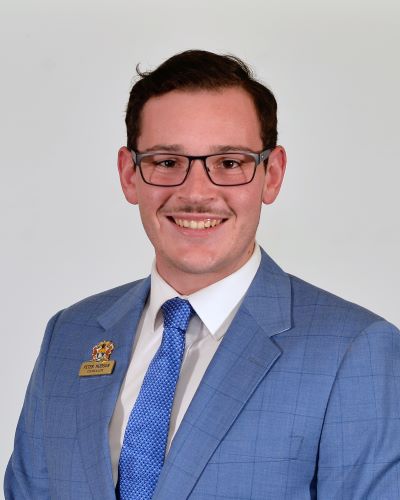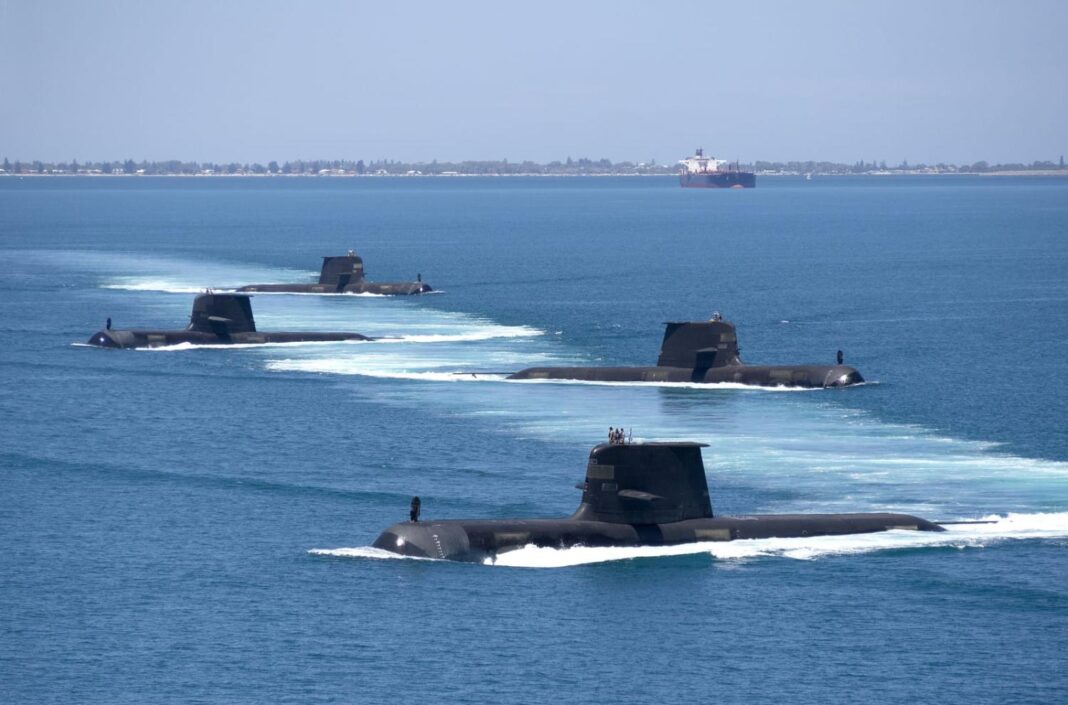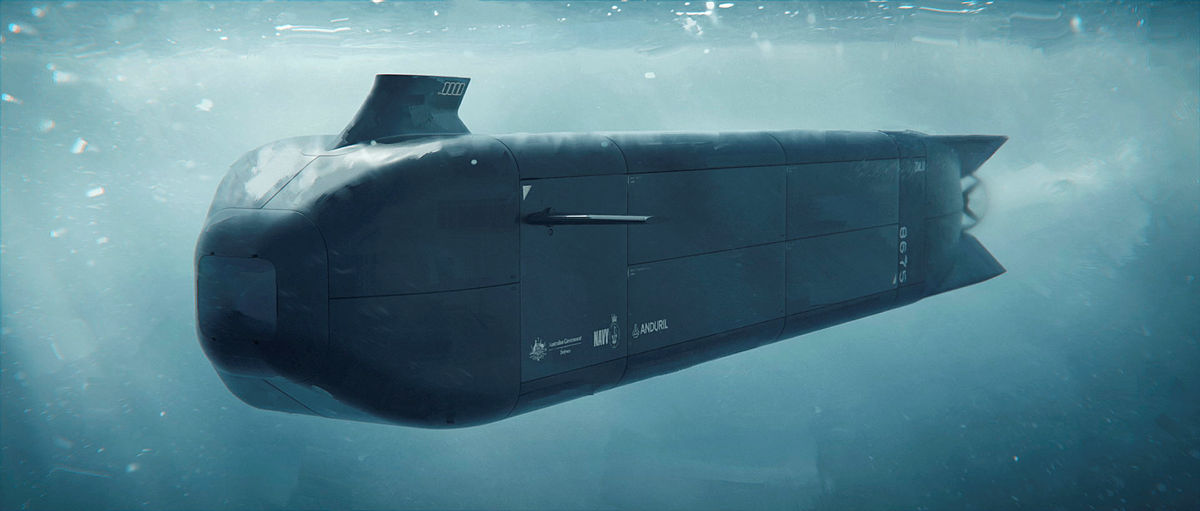City of Rockingham Councillor Peter Hudson shares his vision and thoughts on AUKUS and future plans (Phot Credit: Cr Peter Hudson’s official website)
1. Can you briefly introduce yourself and describe your role as a councillor in the City of Rockingham?
I am Rockingham born and raised, with a background in law, small business and politics, which led to me be elected to the City of Rockingham Council in the 2023 local government elections, with a term until October 2027. As a Councillor for the City, I am fortunate enough to play a role in the strategic and long-term direction of the City of Rockingham, which is one of Western Australia’s fastest growing jurisdictions, by population growth and by investment. My role as a Councillor is one that sees me consistently complete the feedback loop from local residents to the City administration and through to the State & Federal government through advocacy.
2. What are the main economic and social priorities for the City of Rockingham in the coming years?
Local government is far, far more than the old adage of ‘rates, roads, and rubbish,’ indeed in the modern age, a City such as Rockingham has a wide scope of works that must be undertaken to achieve the aspirational outcomes of our citizens. As a result, Rockingham has a set of ambitious priorities to take our City to the next level over the years to come, featuring a strong emphasis on attracting cutting-edge business investment, encouraging local tourism, sustainable development (including housing), and maintaining a close relationship with the Royal Australian Navy (RAN) and HMAS Stirling – after all, Rockingham has always been known as a ‘Navy town.’
3. How does the AUKUS partnership, particularly the focus on nuclear submarines, impact Rockingham given its proximity to the HMAS Stirling naval base?
Allied nuclear submarines have visited the City of Rockingham through HMAS Stirling since the 1980’s. In many respects, the AUKUS agreement facilitates a deeper connection between the City, the RAN, and our US and UK allies, forming the most significant Western alliance in recent memory. With the permanent hosting of Virginia Class submarines being hosted in Rockingham, an unprecedented set of opportunities, and challenges, will emerge that the local community will have to engage with, as will our allied visitors, who also want to integrate into our community, given its proximity to HMAS Stirling.
4. What opportunities do you see for Rockingham in becoming a hub for submarine and naval activities in Australia?
The opportunities for the City of Rockingham to engage with the RAN, Australian Submarine Agency (ASA), US Navy and other elements of the AUKUS agreement are extensive in number as they are in depth. Opportunities to develop infrastructure, including defence-related, non-process infrastructure, and community amenities will quickly become needed by the City. This includes (but is not limited to) upgrades to the local road network – especially the reserved Garden Island Highway – additional housing for local residents & AUKUS personnel, new recreational & hospitality facilities and so on are all necessary to address.
Opportunities around education, training, sharing of industry knowledge with the local business community are some of the non-physical opportunities that the City intends to grasp, especially as they relate to Pillar 2 of AUKUS. The City is also excited at the prospect of the defence force’s themselves engaging with the community as the growing forces at HMAS Stirling integrate with local residents.
5. How is the City of Rockingham preparing to support the submarine and broader defence industry locally?
As HMAS Stirling itself is Commonwealth land, the development of the base for AUKUS purposes rests with the Defence Minister, however the City of Rockingham and readying up for AUKUS by identifying the areas within its jurisdiction that it can influence – like land release and advocacy for funding for local road networks that will be impacted by increased traffic pressures leading up to HMAS Stirling. The City of Rockingham is the closest level of government to its residents, so advocating on their behalf for what the City believes is the best direction for the local community is paramount in ensuring that the best interests of AUKUS are served while at the same time guaranteeing that locals are left better off from the partnership and not forgotten by the government throughout the process.
6. How can the submarine and defence sectors contribute to economic growth and job creation in Rockingham?
The role that defence industry has to play in the development, both for business and otherwise, is enormous. Indeed, it is in industry’s own best interest to foster stable economic growth and job creation in Rockingham and surrounding jurisdictions, so that companies can be certain of their own labour force and supply chains. The Covid pandemic showed us the impact of a ‘hard reset’ to the way we approach supply chains and labour challenges, and given the strategic importance of defence industry, specifically as it relates to AUKUS and the recently announced continuous shipbuilding program, it is of the utmost importance that industry secures these supply chains through corresponding investment into economic growth and job creation locally.
7. What specific skills or training programs are being prioritized to ensure the local workforce is prepared for future opportunities in the defence and maritime sectors?
It has been pleasing to see a take-up of the Defence Industry Pathways Program through TAFE South Metropolitan (TAFE SM), which has seen more than 100 graduates undertake job-specific training before transitioning to a local defence industry firm in Western Australia. It would be great to see this program expanded and more comprehensive allied courses explored.
8. Are there any partnerships with educational institutions or training providers to develop the skills needed for defence-related industries?
Education is an incredibly important aspect of the AUKUS agreement as it relates to the City, with the prospect of trade and engineering skills development for the local population being brought to the fore like never before. There is some particularly good synergy in the design, engineering and construction space for naval architecture, but also for a future nuclear industry, which can be delivered through our allies that have been operating a naval and nuclear industry for decades. TAFE SM seems an obvious choice for these programs; however, I also see much potential for engagement through WA’s university system, especially the Murdoch University Rockingham campus, which is currently underutilised and could vastly benefit from the opportunities brough on by AUKUS.
9. How do you balance the growth of the defence industry with maintaining the quality of life for local residents?
The implementation of the AUKUS agreement is a program of national significance but bares serious local ramifications for the community. It is important that defence balances the needs of the RAN and ASA with that of the local community hosting SRF-West. To stumble at this hurdle would be a failure by the AUKUS partners to achieve the social licence necessary to bring the community with the defence community on this project. Therefore, managing this relationship must be a front and centre priority of the Australian government and defence industry, rather than an adjacent priority that is expected to fall into line.
10. What measures are being taken to ensure that local businesses and the community benefit directly from the expansion of defence activities?
The City has seen engagement from state & federal agencies including the ASA to discuss the opportunities and challenges that face the local business community and residents that will be affected by the AUKUS arrangements. Largely, the information campaign has centred around educating the public as to the true nature and intentions of AUKUS, and dispelling misinformation propagated by a small minority of anti-nuclear advocates. Further engagement directly between the community and the Australian government must take place before the arrival of SRF-West in order to win the mission of ‘hearts and minds’ of the local community.
11. Are there any environmental concerns associated with increased defence activities, and how are these being addressed?
Like any expansion program, the question of sustainability is one that must be addressed in order to be wholistically successful. The environmental concerns of an increase of conventional activity on and around HMAS Stirling have been raised, as well as the question of hosting nuclear submarines alongside our shore.
These concerns are right to be addressed but should be done in such a way that alleviates the concerns of locals – who by-and-large do not understand the scope of works being undertaken on HMAS Stirling, nor the composition of the nuclear core of a submarine – and that also makes economic and defence strategic sense. Accomplishing the mission is the principle that must first be taken into consideration, with appropriate measures including environmental approvals flowing from a unified source.
12. What steps are being taken to ensure that the growth in defence and submarine activities is sustainable and aligns with the city’s environmental goals?
It is important to note that the City is responsible for the land it manages that is within its jurisdiction, which does not include HMAS Stirling itself, or some of the land around Garden Island. However, the City’s aspiration for sustainable development is a long-held principle of importance and should be viewed in the context of growth of HMAS Stirling and the AUKUS personnel that will live, work and play in the local community. As community infrastructure within the City’s jurisdiction is updated to meet the growth challenges posed by AUKUS, the sustainability of this growth must be addressed by both the City and the Australian government.
13. What are the main challenges Rockingham faces in positioning itself as a key player in the submarine and defence sectors?
The main challenge in taking advantage of the opportunities presented by AUKUS is a lack of political will. For many years, the community has lagged in local and community infrastructure, in both funding and delivery, which continues to be a pain point for the City, who have consistently lobbied both state & federal MP’s and agencies for better infrastructure, including defence projects. The Garden Island Highway, which has been reserved for the purpose of opening up a proper pathway to the HMAS Stirling, and has sat unfunded for over 50 years, is a good example of a lack of funding to get local projects underway. This spending dynamic must change in order for the City to capture the full potential of the AUKUS agreement.
14. How does the council plan to address any infrastructure or housing needs arising from an influx of defence personnel and workers?
Recent announcements of defence housing being undertaken in suburbs adjacent to Rockingham is one example the City releasing land for the purposes of housing AUKUS personnel and workers, however in the grand scheme of growth in both Australia’s submarine program and activity on HMAS Stirling, it is clear that more needs to be done. In my view, the City is very much on board to this end, however much of the onus rests with the state & federal government, which has recently sputtered to life on this issue, however more must be done with a view to accomplish the housing goals prior to SRF-West’s arrival in less than three years time.
15. Are there any specific policies or strategies in place to attract investment and talent to Rockingham’s defence and maritime sectors?
The City is proud of its ‘Rediscover Rockingham’ tourism campaign to attract business investment, largely focused around supporting small businesses operating in the City’s jurisdiction, and tourism (both domestic and international) to Rockingham, which are complimentary to defence and maritime industry personnel.
16. Looking ahead, what is your vision for Rockingham’s role within the AUKUS framework and the broader defence industry?
In order to successfully implement the AUKUS agreement, particularly as it relates to hosting SRF-West from 2027, the City must be afforded a seat at the table to able to contribute to and hear from Defence about the changes coming to our community that will inevitably impact local residents. The City’s goal to integrate our US and UK allies into our own community and progress the development of the City through the lens of AUKUS must be achieved through deep and expansive collaboration between all agencies and levels of government, including the City of Rockingham, which manages most of the assets that AUKUS personnel will live with and use.
17. How do you foresee the city evolving over the next decade in response to these developments?
If Rockingham can secure the funding it deserves to get on with the job of delivering AUKUS, I suspect the next decade will constitute a major growth spurt for the City, as we snap up the opportunities that we can and solve the challenges that present themselves. In practical terms, I hope to see defence-related infrastructure finally actioned, such as the Garden Island Highway, other local road networks addressed and works on HMAS Stirling itself completed. From a community infrastructure standpoint, I hope to see many of the flagship projects that have often been touted but never funded to finally get underway. Crucial economic development projects such as the Port Rockingham Marina, development at Cape Peron, a fully functioning Arts Centre, the new Rockingham and Waikiki Hotels, and a whole range of other projects need to be finally funded and completed for the benefit of the community, including AUKUS personnel.
18. What role can the local government play in ensuring that Rockingham remains a vibrant, sustainable, and economically resilient community?
The City of Rockingham intends to stay actively involved in our community’s development, including as it relates to AUKUS. The City should hold fast to its goals and aspirations set out in its business plan, which sets a ten-year strategic vision to ensure Rockingham develops in a sustainable, economically resilient and attractive place to live, work and raise a family. The City can further achieve this through its strong advocacy to its local MPs, as well as state & federal agencies and the Department of Defence/ASA who will be required to fund many of the infrastructure projects needed to keep up with the demands of AUKUS.
19. Is there anything else you would like to share about Rockingham’s plans or challenges related to the defence and submarine sectors?
Delivering AUKUS is a national program, but for Rockingham the mission is a local one. The City understands that AUKUS will lead to a transformation of our community as we welcome our allies into our own ranks, and we will embrace the challenges and opportunities that stem from this. I call on all agencies, entities, local Members of Parliament and government’s of all stripes, to put aside the machinations of politics and work collaboratively with all stakeholders to tackle the challenges presented to our local community head-on, and with enthusiastic dedication to achieving the mission. We need statesmanship, now more than ever. When we move together in a unified direction, we can accomplish great things for both the local community and the national security & defence ecosystem of the nation.
20. How can residents stay informed and involved in discussions about the future of defence and related industries in Rockingham?
Keep up to date with my communications about the City of Rockingham and WA defence industry by following my page on social media:
Facebook: Cr Peter Hudson
Instagram: @CrPeterHudson
LinkedIn: Cr Peter Hudson
Mobile: 0493 773 699, Email: [email protected]
Additionally, keep up to date with the City of Rockingham website for other new and information.



